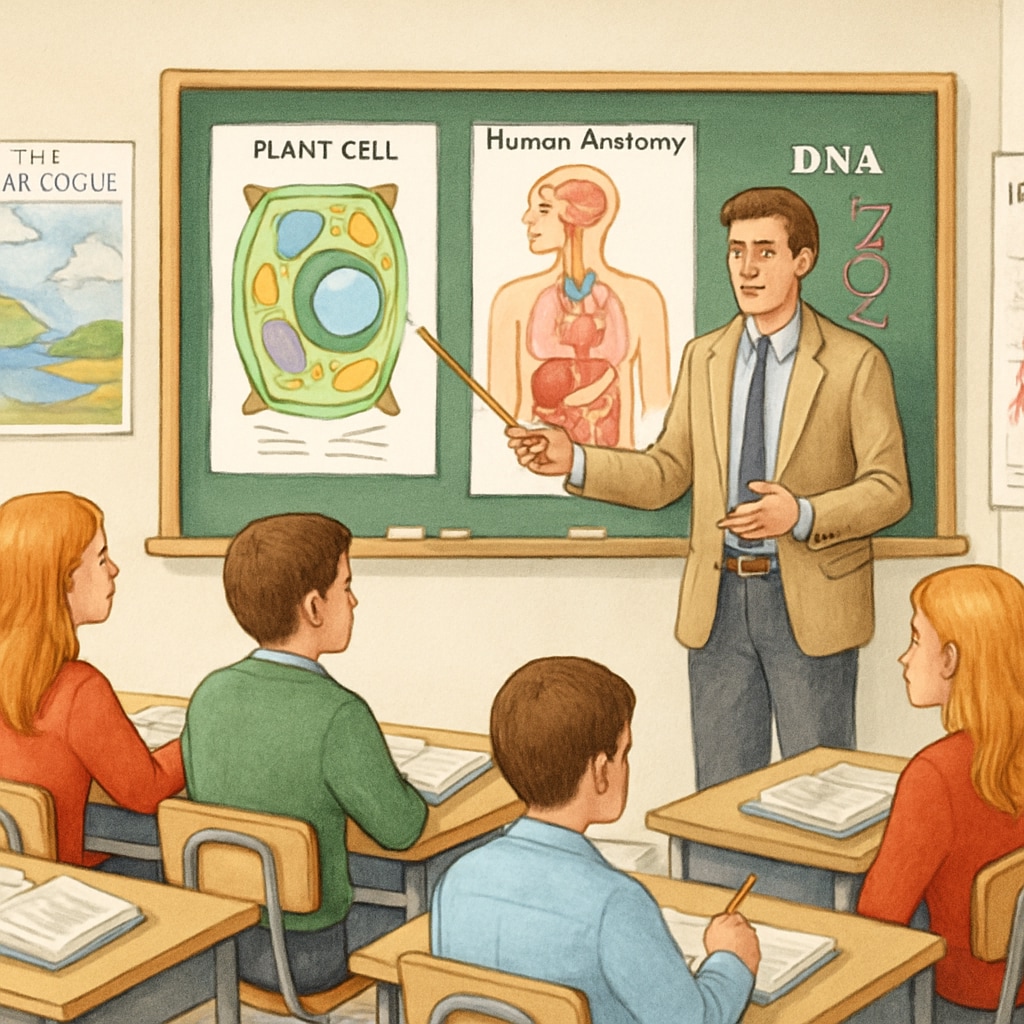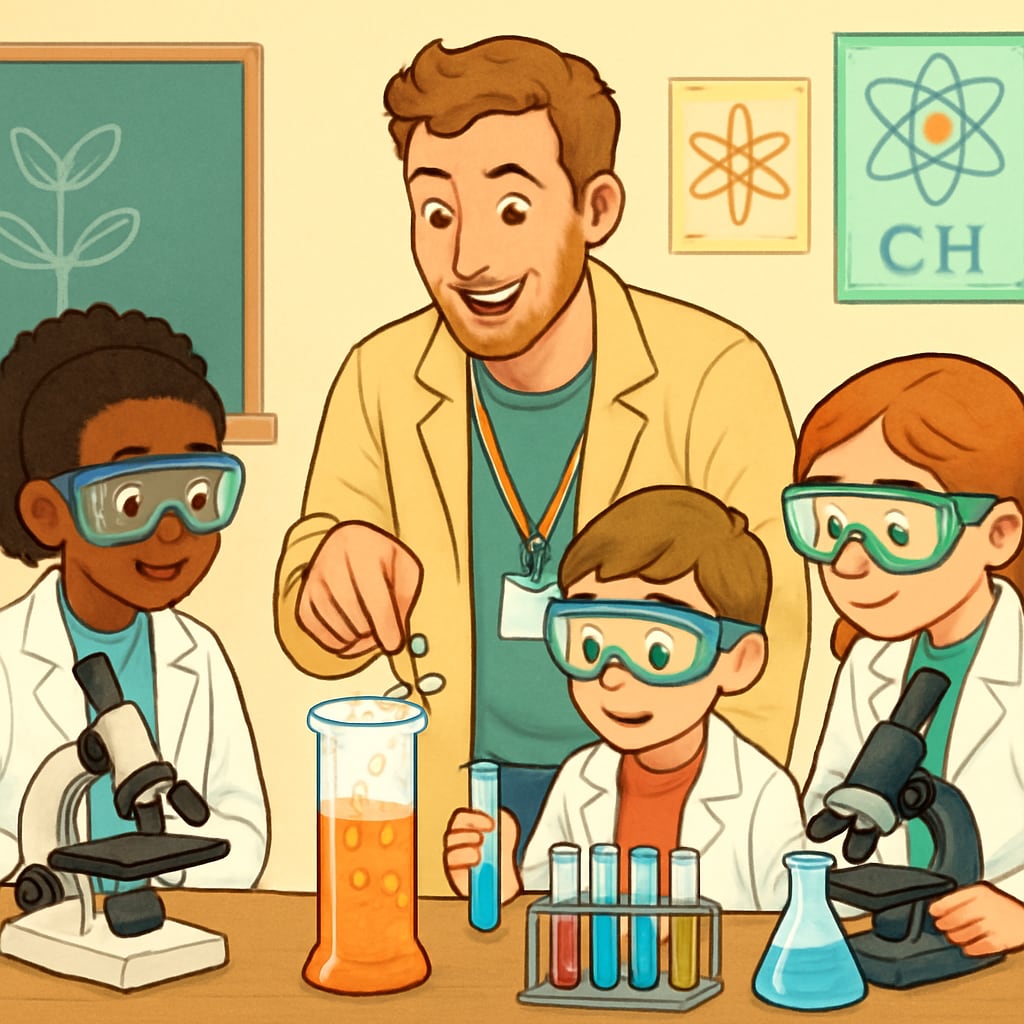The transition from a biology background to pursuing a Master’s in Education is an increasingly relevant topic for those seeking to combine their scientific expertise with a passion for teaching. This academic shift, though seemingly unconventional, is both feasible and valuable. By leveraging interdisciplinary knowledge and addressing specific challenges, biology graduates can bring unique perspectives to the field of education, particularly in K-12 STEM (Science, Technology, Engineering, and Mathematics) education.
Why Transition from Biology to Education?
Many biology graduates are driven by an inherent desire to make a broader impact beyond research or laboratory work. Education, particularly at the K-12 level, offers the opportunity to inspire and nurture future generations of scientists and critical thinkers. Additionally, the demand for qualified STEM educators remains high globally, creating a strong career pathway for those with expertise in biological sciences.
Biology graduates possess skills that can be directly applied to the educational field, such as analytical thinking, attention to detail, and knowledge of scientific methodology. These competencies are invaluable in teaching science subjects and fostering a deeper understanding of the natural world among students. Furthermore, the transition to education can be particularly rewarding for individuals who thrive in interactive, collaborative environments and are passionate about mentoring young minds.

Challenges of Transitioning to a Master’s in Education
While the transition from biology to education offers numerous opportunities, it is not without its challenges. One of the primary hurdles is adapting to the pedagogical theories and practices that underpin effective teaching. Unlike biology, which is rooted in empirical data and experimentation, education emphasizes human interaction, developmental psychology, and instructional strategies. This shift in focus may require significant adjustment.
Another potential challenge is the perception of a lack of direct teaching experience. Many Master’s in Education programs expect applicants to have some background in teaching or tutoring. Biology graduates may need to proactively seek opportunities to gain classroom experience, such as volunteering as a teaching assistant or participating in community education programs.
Additionally, prospective students may face logistical hurdles, such as meeting prerequisite requirements or financial constraints. For example, some education programs may require courses in social sciences or prior certifications, which may not align with a biology graduate’s academic history.
Strategies for a Successful Transition
To navigate the transition from biology to a Master’s in Education successfully, consider the following strategies:
- Gain Practical Experience: Volunteer at schools, tutor students, or participate in educational outreach programs to build relevant experience and strengthen your application.
- Research Programs: Look for education master’s programs that emphasize STEM education or offer pathways for non-traditional candidates. Some programs specifically target individuals with strong STEM backgrounds.
- Highlight Transferable Skills: Emphasize your strengths, such as problem-solving, analytical thinking, and communication skills, in your application essays and interviews.
- Obtain Recommendations: Secure letters of recommendation from professors or mentors who can attest to your teaching potential and academic abilities.
- Prepare Financially: Explore scholarships, assistantships, and grants aimed at STEM educators to ease the financial burden of graduate studies.

The Value of Interdisciplinary Expertise
Biology graduates who pursue a Master’s in Education contribute to the growing need for interdisciplinary expertise in the classroom. Their deep understanding of biological concepts allows them to teach science in ways that are both accurate and engaging. Additionally, their scientific mindset equips them to critically evaluate educational practices and integrate evidence-based strategies into their teaching.
Interdisciplinary educators play a vital role in bridging the gap between scientific research and public understanding. By fostering curiosity and critical thinking in young learners, these educators help prepare the next generation to tackle global challenges such as climate change, public health, and conservation.
Conclusion: A Path Worth Exploring
The transition from a biology background to a Master’s in Education is not only feasible but also highly rewarding for those passionate about teaching and learning. By addressing challenges proactively and leveraging their unique strengths, biology graduates can make meaningful contributions to the field of education. For aspiring educators with a STEM background, this academic shift represents a powerful opportunity to inspire the next generation of scientists, innovators, and critical thinkers.
As the demand for STEM educators continues to grow, this cross-disciplinary journey is an excellent example of how diverse expertise can enrich the educational landscape. Whether in a classroom, a laboratory, or a community setting, biology graduates turned educators are uniquely positioned to make a lasting impact.
Readability guidance: The article uses clear, concise language with short paragraphs and lists to summarize key points. Transition words such as “however,” “in addition,” and “for example” are used to ensure smooth flow, while passive voice and long sentences are minimized.


